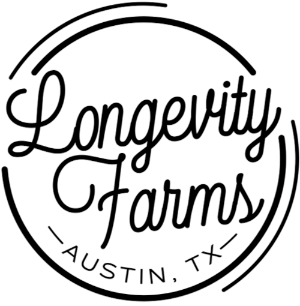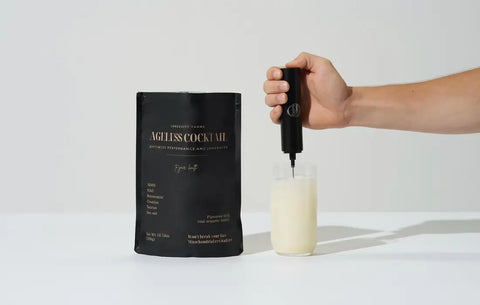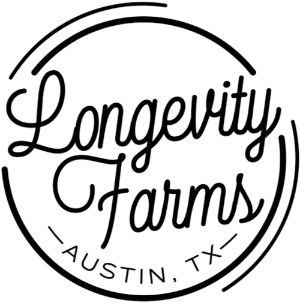Nicotinamide mononucleotide (NMN) is a molecule gaining fame for its anti-aging potential, and now NMN for athletes is an emerging area of interest. Could this “longevity molecule” also enhance workout performance, improve endurance, and aid muscle recovery? In this comprehensive guide, we’ll explain what NMN is, how it works in the body, and what current science says about its benefits for exercise—from NMN pre-workout use to long-term effects on strength and stamina.

What is NMN? A Longevity Molecule Turned Performance Booster
NMN stands for nicotinamide mononucleotide, a derivative of vitamin B3 and a direct precursor to NAD⁺ (nicotinamide adenine dinucleotide). NAD⁺ is a crucial coenzyme found in all living cells, involved in hundreds of metabolic reactions, including energy production and cell repair. NMN for longevity gained popularity after research showed that boosting NAD⁺ levels can help counteract some of the effects of aging. Giving NMN to older mice could slow down aging, improving their metabolism and energy. For example, one study found that older mice drinking water supplemented with NMN had metabolism and energy production resembling that of younger mice. This anti-aging effect is a big reason NMN is often discussed as a longevity supplement.
Initially, NMN gained fame in the biohacking and longevity community. High-profile researchers, such as Dr. David Sinclair of Harvard, have reported that NAD⁺ precursors like NMN improved health and lifespan in animal studies. The excitement around longevity has naturally crossed over to sports and fitness: if NMN can make cells “younger” and more energetic, could it also enhance physical performance? Athletes and coaches have begun paying attention to NMN as a potential ergogenic aid (a performance enhancer), beyond just an anti-aging pill.
How NMN Works: NAD⁺, Mitochondria, and Energy Production
To appreciate the impact of NMN on exercise, we need to examine the biochemistry behind it. NMN converts into NAD⁺ in cells, and NAD⁺ plays a central role in energy metabolism. Mitochondria, often dubbed the “powerhouses” of cells, use NAD⁺ to help generate ATP (adenosine triphosphate), the molecule that powers muscle contractions and virtually all biological activity. In other words, NMN and mitochondria are closely linked through NAD⁺.
When NAD⁺ levels are high, mitochondria can burn fuel more efficiently to produce ATP. During exercise, our muscles demand a rapid supply of ATP. NAD⁺ is required to oxidize nutrients (glucose, fatty acids) in the tricarboxylic acid cycle (TCA cycle), which generates NADH that feeds into the electron transport chain to make ATP. During prolonged exercise, muscles consume NAD⁺ and produce NADH to ramp up ATP production for energy. This means boosting NAD⁺ through NMN could potentially support greater energy output by mitochondria.
Beyond its role in basic energy conversion, NAD⁺ also influences cellular stress responses and recovery. NAD⁺ is a required cofactor for sirtuins, a family of enzymes that regulate metabolism and cell health (often called “longevity genes”). High NAD⁺ levels activate sirtuins and AMPK, a key energy-sensing enzyme. Together, these factors can enhance mitochondrial biogenesis and improve muscle endurance adaptations to exercise. Taking NMN before workouts might mimic some benefits of exercise at the cellular level by activating the same pathways that increase mitochondria and oxidative metabolism. This is one reason researchers are interested in NMN for both healthspan and athletic performance.
Endurance and VO₂ Max: Can NMN Boost Aerobic Performance?
One of the most exciting areas of study is NMN for endurance and aerobic capacity. Endurance athletes (runners, cyclists, etc.) thrive on efficient oxygen use and high aerobic energy output. VO₂ max – the maximum rate of oxygen consumption during exercise – is a key measure of aerobic fitness. Many athletes wonder, Does NMN improve VO2 max? The latest research suggests that NMN may enhance certain aspects of endurance performance, although it may not significantly increase the absolute VO₂ max value itself.
A groundbreaking 2021 human study investigated NMN supplementation in 48 amateur runners over a six-week training program. Participants took either a placebo or NMN while following a regular endurance training regimen. The results showed that NMN significantly improved the runners’ ventilatory threshold in a dose-dependent manner. The NMN group could run at higher intensity before accumulating fatigue, indicating enhanced endurance. This suggests the relationship between NMN and VO₂ max is indirect: NMN didn’t push the ceiling of VO₂ max higher in that trial, but it raised the floor of sub-maximal performance by delaying fatigue.
NMN for Strength and Muscle Growth
It’s important to manage expectations. NMN is not an anabolic steroid or a protein supplement; its mechanism (boosting NAD⁺) is more about improving cellular energy and repair. As such, we wouldn’t expect NMN for muscle recovery alone to trigger huge muscle mass gains. However, by improving cellular health and reducing age-related decline, NMN might help maintain muscle function, especially in older individuals. In young athletes, the direct impact on strength is less clear. Recent research in older adults is more promising. A 2022 clinical trial in Japan looked at 42 healthy men over 65 years old who took 250 mg of NMN daily for 12 weeks. The goal was to see if NMN could counteract age-related muscle loss and weakness. While NMN did not increase the men’s muscle mass (lean body mass stayed the same), it did lead to functional improvements. The NMN group showed significant gains in gait speed and in grip strength with their left hand. Both walking speed and grip strength are important indicators of muscular fitness in the elderly, often correlating with better balance and lower risk of frailty. I
It’s also worth noting that NAD⁺ levels decline with age and even with intense training stress, so using NMN might help preserve muscle function as you get older or during heavy training blocks. While NMN for muscle growth is not a magic bullet, its role in supporting muscle health is valuable, especially for aging athletes who want to maintain their strength and avoid the decline of sarcopenia.

Using NMN: Dosage and Timing for Athletes
It’s important to note that taking NMN does not have any acute stimulant effect like caffeine. You won’t feel a sudden surge of energy or jitters. Instead, the benefits are more subtle and accumulate with consistent use, resulting in improved cellular energy and endurance over time. Think of it more like a daily vitamin than a one-off energy booster. Regular daily supplementation ensures that your muscles are nutritionally primed with NAD⁺ for both training days and recovery days.
-
Dosage tips: If you’re new to NMN, start with a lower dose (e.g., 250 mg per day) for a week to assess your tolerance, then increase to 500 mg or more as desired. Some individuals take up to 1000 mg (1 gram) or more, but high doses can be expensive, and it’s unclear if they provide proportional benefits.
-
Timing tips: Taking NMN earlier in the day is generally recommended, since that’s when your NAD⁺-dependent metabolic processes are most active. Avoiding very late-day dosing may be wise, as NAD⁺ is linked to our internal clocks, and some people find that taking it late could interfere slightly with sleep. If using multiple doses, a good split is morning and early afternoon. Also, ensure that you support your training with proper nutrition—NMN is not a substitute for carbohydrates, protein, electrolytes, and other essential nutrients needed for workout energy and recovery.
Always listen to your body and adjust as needed. As with any supplement, it’s wise to consult a healthcare professional, especially if you have any medical conditions or are taking other medications.
Choosing the Best NMN Supplement
The quality of your supplement matters – perhaps even more so with NMN, given that it’s a somewhat expensive ingredient and has specific storage needs. When shopping for the best NMN supplement, consider a few factors: purity, form (capsule vs powder), third-party testing, and the reputation of the brand. High-quality NMN should ideally be ≥99% pure and free of heavy metals or contaminants. Reliable manufacturers will often provide certificates of analysis (COAs) for their batches.
Many athletes and consumers prefer pure NMN powder due to its flexibility and cost-effectiveness. Powder can be mixed with water or juice (some people add it to a smoothie or make their own longevity drink concoction each morning). Powder form also allows you to measure out custom doses if you have a scale, and it tends to be cheaper per gram than pre-made capsules. However, powder should be stored properly because NMN can degrade over time due to exposure to humidity and heat.
When evaluating brands, look for transparency. Does the company clearly state the source of their NMN and provide testing results? Be cautious of ridiculously cheap products; if an NMN supplement is far cheaper than competitors, it could be a red flag that the product is low-purity or even a counterfeit. One brand providing high-quality NMN is Longevity Farms, which offers NMN in pure powder form. With any brand, reading reviews and ensuring they have good manufacturing practices is wise. Third-party testing from labs like SGS or NSF is a plus, especially for athletes who undergo drug testing and need assurance there’s no contamination with banned substances.
Safety and Legality: What Athletes Should Know
NMN appears to have a strong safety record in studies so far. Human trials have reported no serious adverse effects from NMN supplementation, even at relatively high doses. Participants taking up to 1200 mg of NMN daily for 6 weeks in the endurance study experienced no significant side effects or abnormal blood markers. Likewise, older adults taking 250 mg for 12 weeks showed no adverse events. NMN is a form of vitamin B3 derivative, and unlike some other B3 forms, NMN has been well tolerated. Rodent studies have also not flagged any toxicity at doses equivalent to or higher than typical human doses.
From a legal standpoint in sports, NMN is not a prohibited substance. It is not a hormone, stimulant, or anabolic agent, but rather a vitamin-related nutrient. As of 2025, NMN is not listed on the World Anti-Doping Agency (WADA) prohibited substances list, meaning athletes can use NMN without violating doping rules. This makes sense, as WADA typically bans substances that provide unnatural advantages or pose health risks, and NMN is essentially a nutritional supplement boosting a naturally occurring molecule (NAD⁺). Athletes in professional leagues and the Olympics have used similar supplements (like nicotinamide riboside, another NAD⁺ precursor) without issue.
It’s essential to approach NMN as part of a broader health and training plan. As mentioned, it’s not a substitute for proper training, nutrition, hydration, and rest. If you have any medical conditions or are taking medications, consult your doctor to ensure NMN is suitable for you. People who are pregnant or breastfeeding should also consult a healthcare provider before use, simply because there’s not enough research in those populations. The good news is that NMN’s safety profile so far is clean, and athletes can use it without breaking rules. This positions NMN as an appealing option for experimenting with for performance and recovery gains, with a relatively low risk.

NMN is an exciting supplement at the cutting edge of sports science and longevity research. It underscores that taking care of our cellular health can pay off in both the short term and long term. NMN for athletic performance is a promising field, and for athletes and fitness enthusiasts looking for an edge, it’s certainly an option worth exploring responsibly. Who knows – the secret to both running faster today and staying vital for decades to come might lie in nourishing your cells’ NAD⁺ levels with molecules like NMN.
Sources
-
“Natural compound reduces signs of aging in healthy mice” – Washington University School of Medicine (2016) medicine.washu.edu
-
“Nutrition, NAD and exercise: vitamin B3 supplements to stay fit and healthy?” – The Endocrinologist, Society for Endocrinology (2020) endocrinology.org
-
“NMN appears to boost endurance in amateur runners, study finds” – NutraIngredients (2021) nutraingredients.com
-
“Insight into the application of nicotinamide mononucleotide (NMN) to age-related disorders” – ProBiologists (2023) probiologists.com
-
Liao et al., “Nicotinamide mononucleotide supplementation enhances aerobic capacity in amateur runners: a randomized, double-blind study.” – J. Int. Soc. Sports Nutr. (2021, 18:54) pmc.ncbi.nlm.nih.gov




